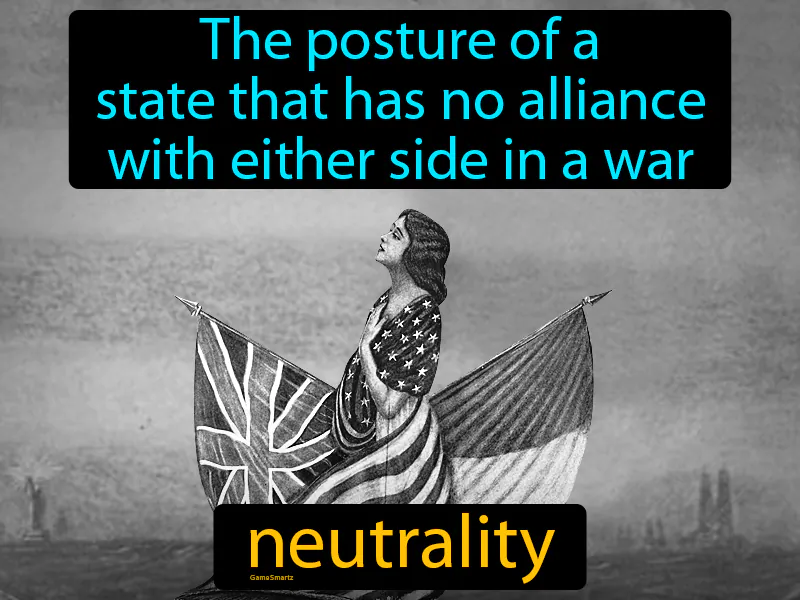Neutrality
Neutrality: Easy to understand
During World War I, some countries, like Switzerland, chose neutrality, meaning they didn't take sides in the conflict, hoping to avoid the destruction and loss suffered by warring nations. This was important because it allowed neutral countries to focus on humanitarian efforts and maintain trade with all sides without being targeted. Similarly, during the Russian Revolution, some regions tried to remain neutral to avoid getting caught up in the chaos and violence of the changing government. Today, neutrality is still relevant as it represents the idea of staying impartial in conflicts or disputes, which can help maintain peace and cooperation. For example, if there's a disagreement among friends, choosing to remain neutral can help keep the group together and avoid taking sides, ensuring fair treatment and understanding for everyone involved.

Practice Version

Neutrality: The posture of a state that has no alliance with either side in a war. Neutrality. In history, neutrality means a country deciding not to support any side in a conflict to avoid getting involved in the war.